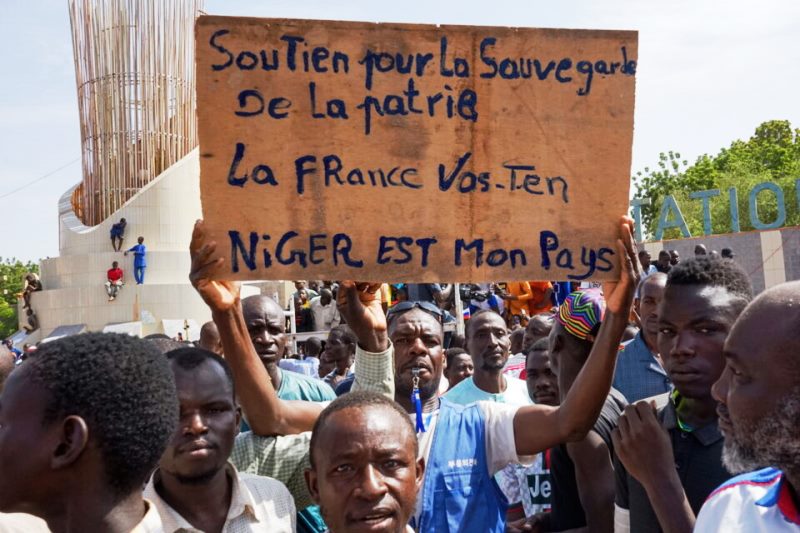In reaction to the expulsion, a few hours earlier, of its ambassador to Niger by the military authorities, France indicated yesterday Friday that “the putschists have no legitimacy to make this request”. In response, the government of Niger also confirmed its “sovereign decision” which for the moment only concerns Ambassador Itté of France. This is enough to amplify the diplomatic standoff between Niamey and Paris, which is likely to be further exacerbated due to the current context marked by more insistent information on a possible intervention by ECOWAS with the support of France.
In a press release published Friday evening, the French Ministry for Europe and Foreign Affairs announced that it had taken note of the request from the new military authorities of Niger. “The putschists do not have the authority to make this request, the ambassador’s approval coming only from the legitimate elected Nigerien authorities,” said the Quai d’Orsay in correspondence sent to AFP.
In a tweet, President Bazoum’s head of diplomacy, Hassoumi Massaoudou, also indicated that “the Ambassador is accredited to the elected, legitimate and legal President of the Republic of Niger”.
In a clarification published later, the government of Niger through its Ministry of Foreign Affairs and Cooperation denied the expulsion of the Ambassadors of Germany, Nigeria and the United States of America, while specifying that only that of France in Niger was declared persona non grata in the country. A “sovereign decision” according to the same source, which adds that to exercise its prerogatives and have Ambassador Sylvain Itté leave, after this 48-hour period, “Niger does not need an authorization or an interpretation from the Vienna Convention of 1961”.
Showdown between Niamey and Paris
It should be recalled that a little earlier in the day, the Nigerien authorities had announced their decision to expel the Ambassador of France to Niger, Sylvain Itté. According to correspondence from the head of Nigerien diplomacy addressed to his French counterpart, this decision follows the French diplomat’s refusal to respond to an invitation from the Nigerien Ministry of Foreign Affairs to discuss the case of the former Nigerien ambassador to France, Ms. Kane Aichatou Boulama, following his refusal to leave office despite his recall by the country’s new authorities. The Nigerien Minister of Foreign Affairs had also denounced “other actions of the French Government, contrary to the interests of Niger”. Consequently, “the competent Nigerien authorities have decided to withdraw their approval from Mr. Sylvain ITTE” while asking him to “leave Nigerien territory within forty-eight hours (48h)”.
This new episode risks amplifying diplomatic tensions between Paris and Niamey. Since the events of July 26 and the advent of the National Council for the Safeguarding of the Homeland (CNSP), relations between Niger and the former colonial power have continued to deteriorate. The French authorities refuse to recognize the legitimacy of the new authorities who subsequently decided to denounce, at the beginning of August, the cooperation agreements in the field of defense and security between the two countries. France has even been accused by the military authorities of “destabilizing maneuvers”, which Paris has denied, although France has never made any secret of its desire to support ECOWAS in its desire to intervene militarily. in Niger to restore constitutional order.
During the demonstrations that are held regularly in the country, relations with France are particularly denounced and particularly the presence of its 1,500 soldiers still stationed in Niger. At the beginning of the month, French interests, in particular the premises of the embassy, were the target of acts of vandalism by overexcited demonstrators, which led Paris to decide to repatriate its nationals to the country.
In recent days, we have witnessed a real outcry in the country with the multiplication of demonstrations which are gaining more and more momentum, especially in the big cities, because of the information more and more insistence on a possible military intervention. of ECOWAS with the support of France. This risks further complicating things between the two countries, especially if the French authorities decide to persist in their posture of mistrust of the new military authorities.
This article is originally published actuniger.com







